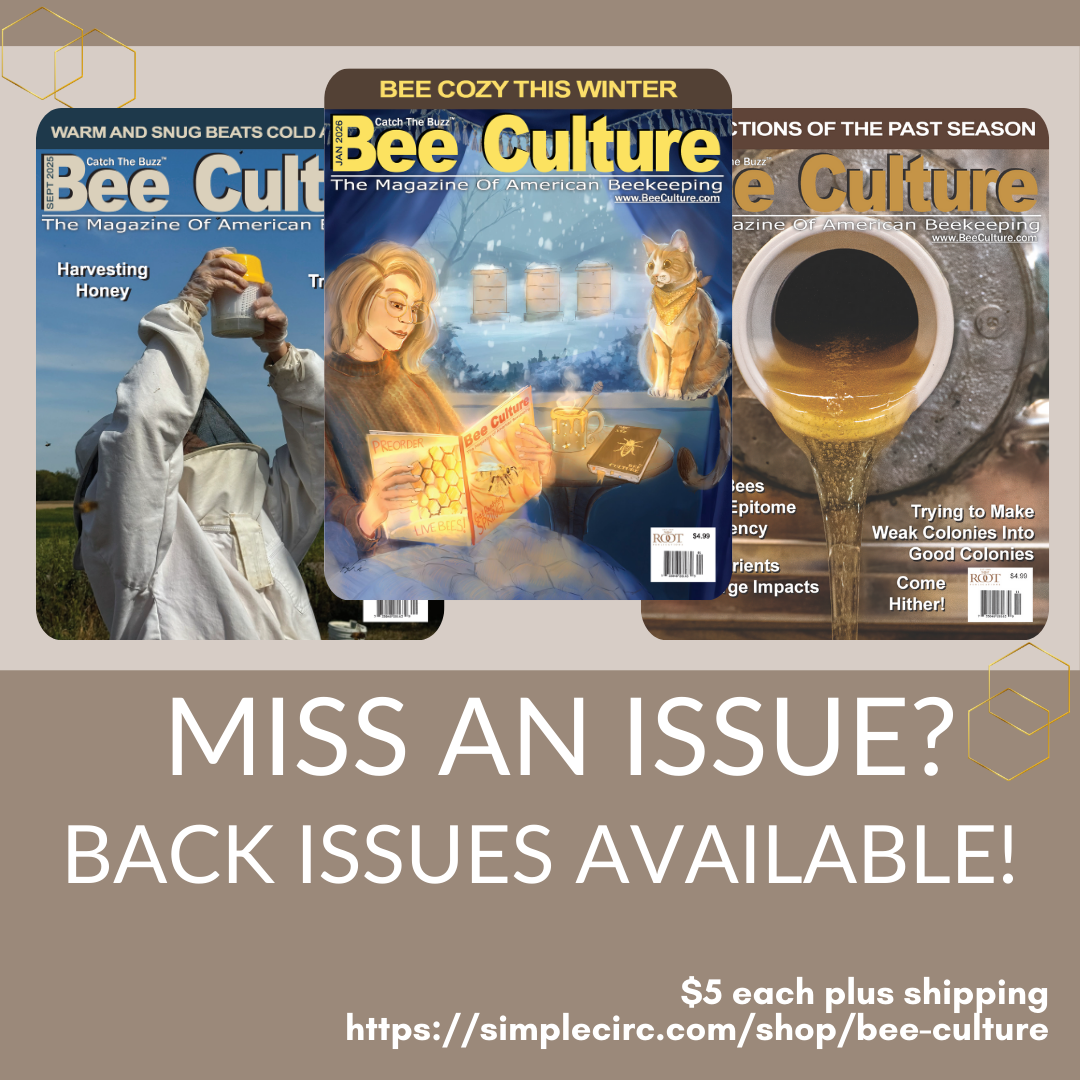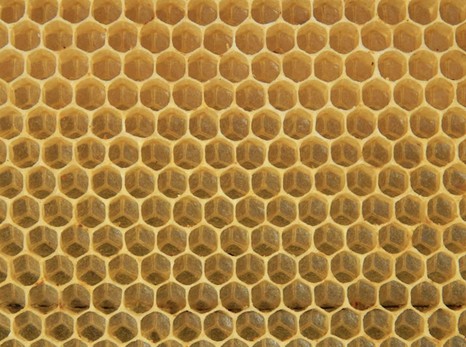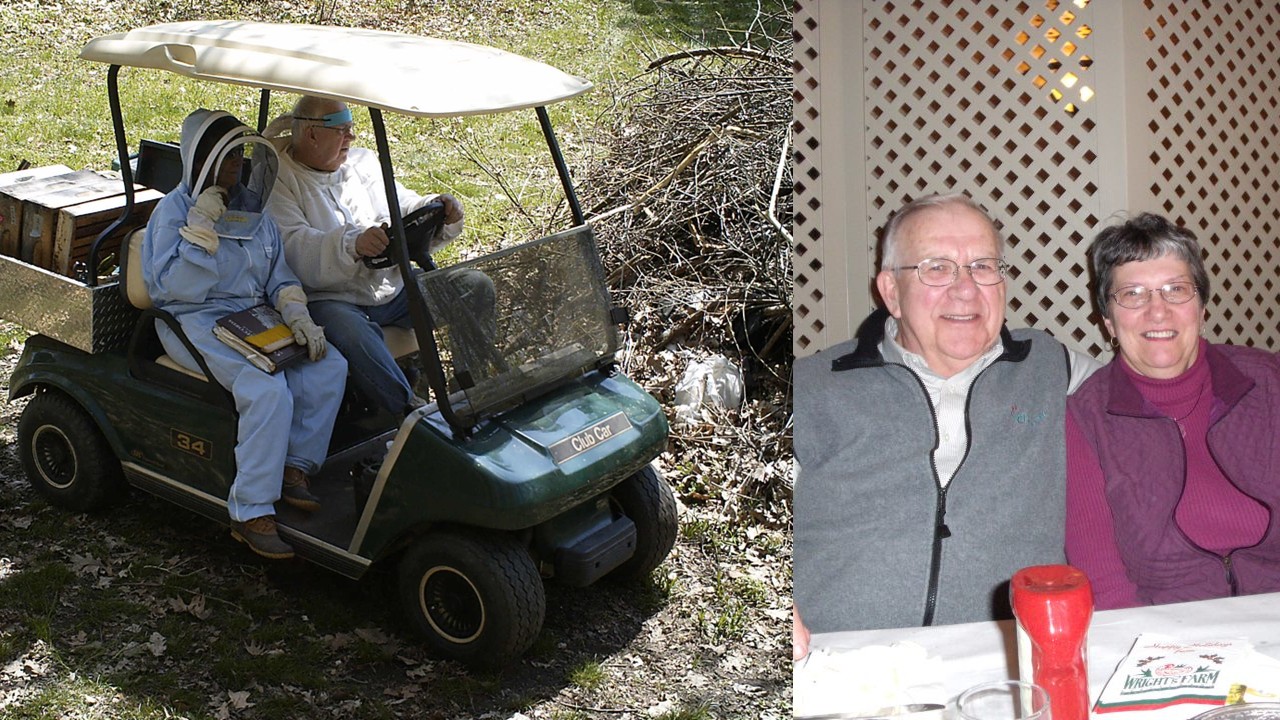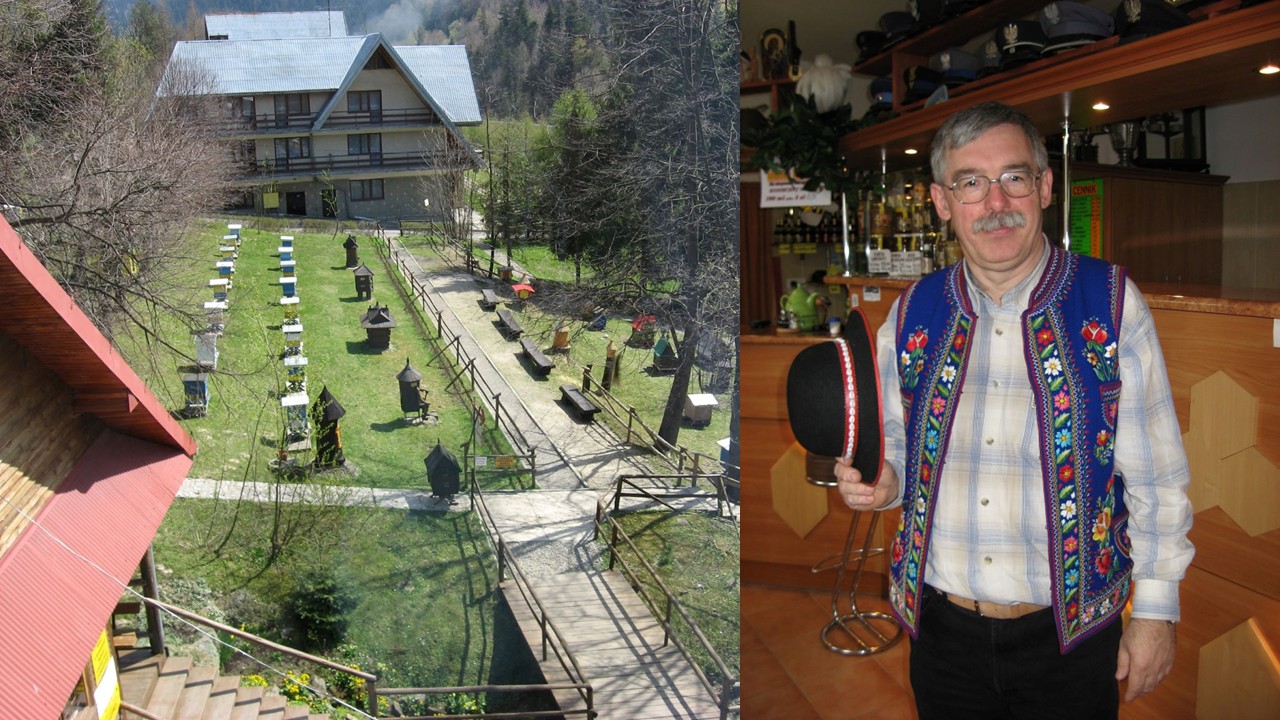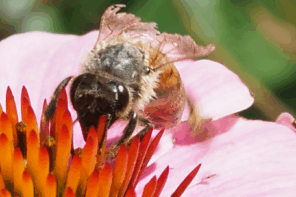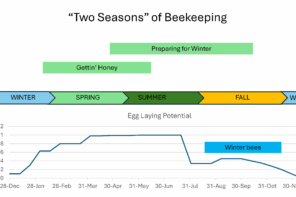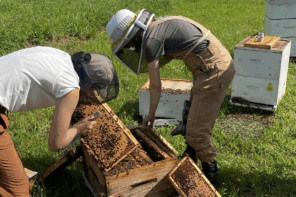Click Here if you listened. We’d love to know what you think. There is even a spot for feedback!
Read along below!
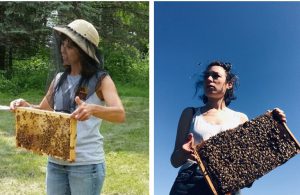
Becky Masterman earned a PhD in entomology at the University of Minnesota and is currently a host for the Beekeeping Today Podcast. Bridget Mendel joined the Bee Squad in 2013 and led the program from 2020 to 2023. Bridget holds a B.A. from Northwestern University and an M.F.A. from the University of Minnesota. Photos of Becky (left) and Bridget (right) looking for their respective hives. If you would like to contact the authors about your divides, please send an email to mindingyourbeesandcues@gmail.com.
Minding Your Bees and Cues
The Man Who Gave Up Beekeeping (or Did He?)
By: Becky Masterman & Bridget Mendel
Do you remember your first introduction to beekeeping like it was yesterday? You were on Summer break from college. You took the Amtrak train from downtown Chicago. Suburbs made way for red-brick towns, then, for hours, you fled through flat green fields of corn. The farm you were headed for was in humid, hilly southern Illinois. It was 2009, a Summer of storms and floods; corn stood knee high in water and everything was green and furious with insects and frogs. You stayed with an old beekeeper and his wife. You remember being handed a hive tool, told never to put it down in the apiary, where it could be lost in the dark shade of the sassafras trees. With reverence, the old beekeeper pulled a frame from one of the hives and held it up to the sun. It glowed red-gold. “Look closely at the cells,” he said. “You can see the Mercedes logo.”
Beekeeping with another person creates a special bond. A mentor, mentee, a kid, a friend, a wife, whoever it is, you’re going in together to experience awe. As beekeeping teachers, we spend a lot of time promoting management practices based on science, climate and personal experience. But recently we got to talking about how our beekeeping mentors are always much more than their best advice. They’re also their weirdest advice, their worst advice, their stories, the way they see the world through honey-colored glasses. And you know, that rhythm in the apiary where no words are needed, as one lifts, one pries, one peeks, one puffs, one counts, one notes, two heave, one closes and then on to the next hive.
Sometimes a beekeeping bond can transcend the beeyard. Our friendship with Jim Metcalf did not start in an apiary — we have never even met in person. One day Jim mailed one of his handcrafted wooden pens to the University of Minnesota Bee Squad office as a symbol of support for our work. Too beautiful for beeyard notes, the gifted pen is a treasured reminder of a decades-long long-distance beekeeping friendship.
Recently, Jim told us he’d given up beekeeping. The hole left by his wife and beekeeping companion’s death was so big that he gave up his beloved hobby — although every Spring he finds colonies of honey bees that insist on moving into the piles of abandoned equipment in his yard, and he thinks his wife has something to do with it. When our beekeeping companions pass away, it’s uniquely strange, amorphous, swarm-shaped. Jim is not the only one who sees honey bees as messengers between the living and the dead. In Victorian Europe, it was a common practice to tell your bees important news such as births or deaths, as they were considered to be carriers of souls.
We prodded Jim a little bit about his beekeeping experiences and in particular the folks who he learned from or with over his decades of beekeeping. He told us that in rural New England, his beekeeper companions were mostly farmers, so they had a strong sense of bees as agricultural animals that should be cared for as such. Sanitizing hive tools between colonies was just common sense to his dairy farmer friend, to minimize diseases spread. A fellow “bee school” instructor taught students not to over-smoke hives by secretly installing smoke detectors on bottom boards. When a student would overdo it, an alarm would start sounding and a voice would start repeating “please evacuate immediately!” It’s safe to say, one thing Jim misses is the humor shared amongst people who hang out with stinging insects by choice.
Another important mentor for Jim was the commercial beekeeper Jacek Nowak, with whom he exchanged advice and gifts and correspondence for many years. It all began with a visit to Poland (Jim has Polish heritage) where he learned about queen breeding, new kinds of hives, and superior Polish honey varietals that even the Pope preferred (so we hear). Jacek passed away early this year, but Jim’s memories of Jacek’s generosity on that trip are very present.
Even with the loss of our beekeeping companions, even if we give it all up and leave our equipment out in the yard to house angel-bees, are we ever truly not beekeepers? It turns out that Jim, having forsaken beekeeping, still mentors young people that come into his life looking for the magic. What might they remember most about their first beekeeping mentor? Maybe his habit of telling folks that he keeps bees for their wool. We’d personally love to join Jim for his annual bee shearing next Spring.
Reference
Read Jim Metcalf’s article about visiting Jacek Nowak’s queen museum and business (pages 39-41).
https://beeculture.com/wp-content/uploads/2024/04/Nov-2007-Final-R.pdf





